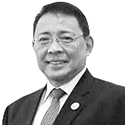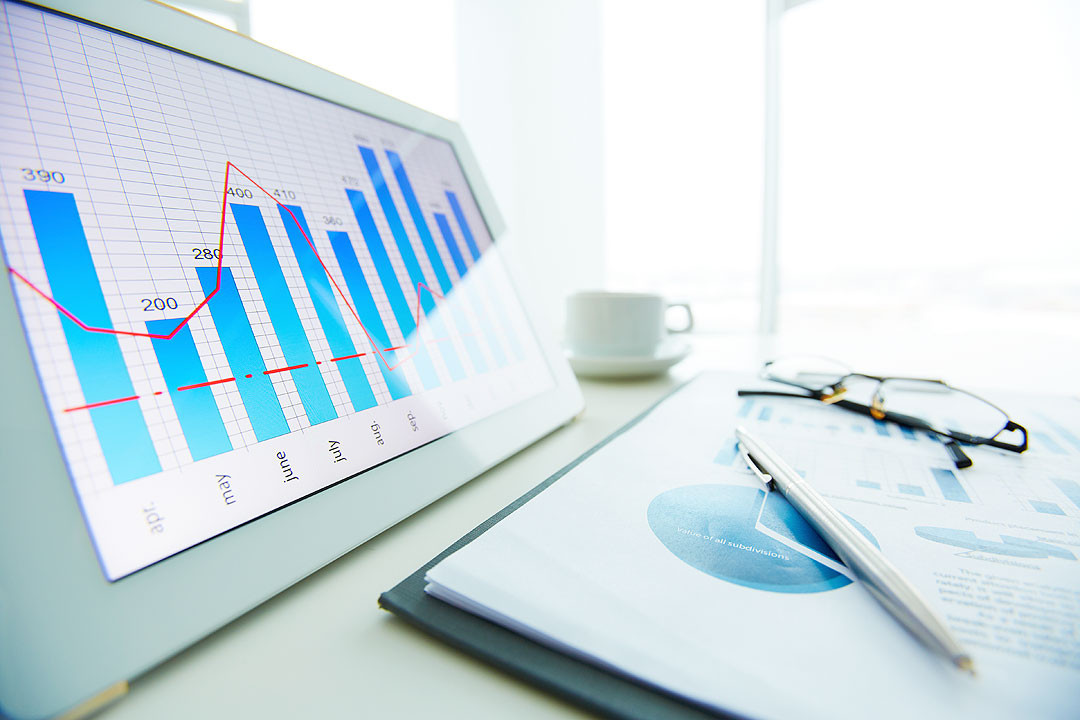
Signs And Wonders
By Diwa C. Guinigundo

A careful reading of the economic platforms of those running for president of this Republic suggests a good differentiation. Who will win the May 9 election should certainly matter, and market reaction would not be even.
Content-wise, their economic platforms couldn’t be more diverse.
Leody de Guzman is running under the mantra, “Bagong Pulitika, Bagong Ekonomiya” or what he calls “A Democratic Socialist Electoral Platform.” Aside from politics and social development agenda, it has an unconventional economic component: production for domestic needs, workers’ control, farmers’ control of agriculture, wealth tax for the richest, five-year national debt cancellation, and recovery of Marcos’ stolen wealth.
Isko Domagoso’s “Bilis Kilos” consists of a 10-point agenda covering housing, education, labor and employment, health, tourism and creatives, infrastructure, industry, agriculture, good governance and smart governance.
Ping Lacson is more focused on addressing four general issues: comprehensive health agenda (testing, contact tracing, treatment and vaccination, healthcare coverage to all Filipinos); rebooting the economy (fiscal stimulus packages for small business, opportunities for farmers and fisherfolk, social safety nets); improving tax administration (cross reference data of relevant agencies); and reinventing government (elimination of corruption, zero-based budget planning, meaningful devolution to local governments, digitalization of processes, partnership with the business sector).
Manny Pacquiao is equally comprehensive but like Isko, he needs more focus. He wants to take up 22 issues which he considers his priority agenda. The Champ wishes to address the issues of stopping corruption; promoting economic growth and development; expanding employment; providing free housing, sustainable livelihood, and education; improving healthcare and tourism; developing agriculture, infrastructure, and sports; reforming the judiciary; increasing private and public salaries; a war on drugs; and strengthening international treaty agreement.
Leni Robredo prioritized health and livelihood. On health, she proposes attaining freedom from health scares, hunger and illiteracy. On livelihood, she would like to restore trust in government, energize Filipino industries, end discrimination in the workplace, and support of small business and those who lost their jobs.
Marcos Jr.’s economic ideas are yet to blossom. He has made reference to agricultural modernization, food security, cheap power, renewable energy, environmental protection, and support of small businesses. These general statements need to be explained as to their specifics but this is not possible unless he joins the other candidates in public debates.
The Filipino electorate deserves to know what these candidates are offering them. Debates are an integral part of the democratic process; elections become meaningful when the people are free to choose who would lead them based on true information and facts. We might be going through the election based on fake news and guesswork. Marcos Jr., by refusing to debate and confront facts, would like the Filipino voters to vote for him and his team based on what we have merely imbibed from social media.
With the other presidential aspirants’ brave appearances in public fora and debates, press interviews, and speeches before crowds, their respective general economic programs have been explained, better understood, and more nuanced.
For instance, during the CNN presidential debates on Feb. 27, these leading presidential candidates were asked about their first order of the day once elected president. Ka Leody declared that he would start his agenda of labor first policy; ending contractualization is foremost in his mind. Isko, for his part, committed to focus first on improving the livelihood of Filipinos.
For Ping, it’s government cleansing, even pledging he would waive his rights under the Secrecy of Bank Deposit Act. Manny was serious in his intent to put up a mega prison dedicated to corrupt government officials. He also wanted to audit all levels of government offices.
For Leni, transparency is her priority. She wanted full disclosure of public transactions to impress upon civil society her seriousness in fixing the government.
As usual, we failed to hear what Marcos Jr. intends to do if ever he is elected president. His call for “unity” is his closest version of a platform. He forfeited the opportunity to explain why his family has refused to return their ill-gotten wealth, and their failure to pay the estate taxes on their inherited assets, whether legitimate or otherwise. The Bureau of Internal Revenue (BIR) has subsequently served them notice to pay.
While these five brave souls slugged it out during the Commission on Elections (Comelec) debate on March 19, Marcos Jr. skipped it and chose to be interviewed on government station PTV by anchor Erwin Tulfo and Communications Secretary Martin Andanar. What this is all about, we also don’t know.
Reuters, on Feb. 8, also released its own helpful reading of the background of these leading candidates. The candidates’ transparency allowed this assessment of what one could expect should any one of them win the presidency.
Reuters was also forthright in saying that the Marcos family “has sought to rebuild an image tainted by the elder Marcos’ often brutal rule and the plunder of billions of dollars of wealth.” It also explained why he was leading in the surveys: “strong presence on social media, one that critics say is attempting to rewrite the family’s controversial history.”
But the most telling commentary on the market consequences of the candidates came from Nomura Global Research. Nomura wrote that a Leni win is “more market-friendly.” This is based on its study of Leni’s experience “at the national level and articulating a strategy for the country’s recovery from the pandemic.”
The Nomura economists considered her experience and strategic approach with the ability to lead the health and economic recovery efforts. She was right to focus on both healthcare and education. The pandemic has overwhelmed our health facilities in the last two years and unmasked decades of criminal neglect. With the lockdown, education was the immediate and most serious casualty.
Nomura gave Leni and her running mate Kiko Pangilinan a maximum of five points for national experience and business friendliness; four out of five for continuity/governance, infrastructure progress, and fiscal discipline. She was singled out for declaring that transparency and accountability shall be central to her presidency.
On the other hand, Nomura dismissed Marcos Jr. as an uncertain choice. He was considered less market-friendly because his victory might cast doubt on the credibility of the May 2022 election.
Although most of the disqualification cases against him were dismissed by the Comelec, Nomura scored Marcos “for making false statements and a previous conviction of failing to file income tax returns.” Today, these charges have been complicated by the renewed call for his family to return their ill-gotten wealth and to pay estate taxes which could run into a couple of hundred billion pesos which have remained unpaid for decades.
Marcos Jr. and his running mate Sara Duterte managed to get four out of five in infrastructure but only three out of five in fiscal discipline and governance. They had lower ratings in national experience than Ping and his running mate Tito Sotto. In business friendliness, they had the lowest score among all the other candidates.
There is uncertainty in the Marcos victory because he himself would face a dilemma in implementing some laws and Supreme Court rulings, the content of which he has denied all these years.
For instance, RA 10368, approved on Feb. 25, 2013, provides for reparation and recognition of victims of human rights violations during the Marcos Regime. Also known as the “Human Rights Victims Reparation and Recognition Act of 2013,” the law overturns nearly everything that Marcos Jr. has denied knowing, much less, admitting.
Aside from such assessments by research outfits and investment banks as guide to prospective investors in emerging markets like the Philippines, investors also consult credit rating agencies. Their value added is their risk assessment on key areas.
The February 2022 rating action by Fitch should be very instructive. While keeping our investment credit rating at BBB, Fitch downgraded our outlook from stable to negative. They considered our strong growth and external buffers but weak structural indicators, cast some uncertainty on economic recovery, and projected higher infra spending. Fiscal deficit and debt monitoring is part of their rating process. Developments in local government finance are also critical as this impacts the overall fiscal position. Fitch also raised issues if the central bank financing of the fiscal deficit is sustained beyond the pandemic needs as it could affect policy credibility.
If the candidate the nation will be voting to Malacañang is at ground zero on these critical markers, we hate to think what could happen to market confidence and economic growth. We should learn our lesson that while we had good continuity of macroeconomic stability and growth in the late 1990s through 2019, it took only one misstep to send us down to the deepest recession we have known in many years.
Diwa C. Guinigundo is the former deputy governor for the Monetary and Economics Sector, the Bangko Sentral ng Pilipinas (BSP). He served the BSP for 41 years. In 2001-2003, he was alternate executive director at the International Monetary Fund in Washington, DC. He is the senior pastor of the Fullness of Christ International Ministries in Mandaluyong.